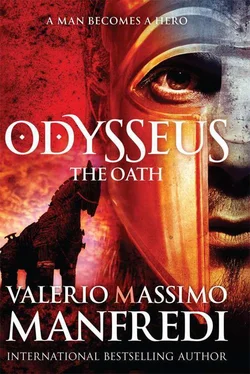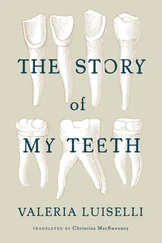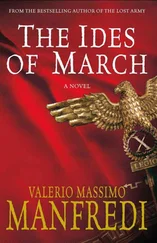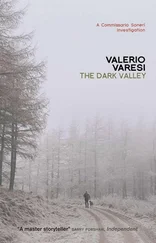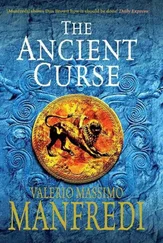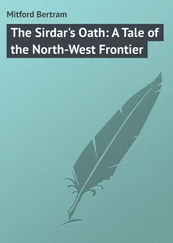Valerio Mafredi - The Oath
Здесь есть возможность читать онлайн «Valerio Mafredi - The Oath» весь текст электронной книги совершенно бесплатно (целиком полную версию без сокращений). В некоторых случаях можно слушать аудио, скачать через торрент в формате fb2 и присутствует краткое содержание. Год выпуска: 2013, ISBN: 2013, Издательство: Macmillan, Жанр: Исторические приключения, на английском языке. Описание произведения, (предисловие) а так же отзывы посетителей доступны на портале библиотеки ЛибКат.
- Название:The Oath
- Автор:
- Издательство:Macmillan
- Жанр:
- Год:2013
- ISBN:9780230769335
- Рейтинг книги:3 / 5. Голосов: 1
-
Избранное:Добавить в избранное
- Отзывы:
-
Ваша оценка:
- 60
- 1
- 2
- 3
- 4
- 5
The Oath: краткое содержание, описание и аннотация
Предлагаем к чтению аннотацию, описание, краткое содержание или предисловие (зависит от того, что написал сам автор книги «The Oath»). Если вы не нашли необходимую информацию о книге — напишите в комментариях, мы постараемся отыскать её.
The Oath — читать онлайн бесплатно полную книгу (весь текст) целиком
Ниже представлен текст книги, разбитый по страницам. Система сохранения места последней прочитанной страницы, позволяет с удобством читать онлайн бесплатно книгу «The Oath», без необходимости каждый раз заново искать на чём Вы остановились. Поставьте закладку, и сможете в любой момент перейти на страницу, на которой закончили чтение.
Интервал:
Закладка:
He knocked three times at the gate with the shaft of his spear. It opened for us.
Twenty warriors, ten on the right and ten on the left, saluted us and escorted us to the palace. My father pointed out, to our right, the funerary enclosure that held the tombs of the Perseids, the first sovereigns of the city, and then the palace, up on high, illuminated by torches. Every step that took us closer to the grand royal dwelling made me feel more anxious and uneasy. I walked close alongside my father but I dared not say a word, so as not to be heard by the men escorting us. I also didn’t want him to think I was afraid. No one crossed our path save a few rare passers-by; all we could hear, now and then, were doors opening and closing on creaky hinges, and I asked myself why the inhabitants of such a dismal place didn’t just leave. Who wouldn’t rather live on a hillside planted with olive trees or a meadow crossed by flocks and herds? Or was it just the gloom of the night that made me feel that way?
I was sure that any small village of farmers or shepherds would have seemed more inviting, but perhaps my father had brought me here so I could understand something that words could not explain. At the heart of the most powerful kingdom of Achaia everything was inverted: evil standing for good, defiance and insult taking the place of justice, perhaps even darkness replacing the light. I started thinking that while night descended on the walls of Mycenae, the sun was still shining on Ithaca and sandy Pylos, and I feared that day would never break over the mute roads of this city.
I would have done anything to avoid meeting Eurystheus because I knew deep down that he was evil and sensed we would also be in danger if we ate his bread and spent the night under his roof. But we’d already reached the entrance to the palace.
He received us, alone, in the armoury. I had never seen so many spears and swords, so many shields, so many helmets with their crests. They completely covered the walls. Scores of full suits of armour, lit up by oil lamps, seemed the ghosts of fallen warriors. He sat down with a sigh on a bench and gestured for us to take seats as well. He offered us no wine, no bread, no salt.
‘What brings you here, king of Ithaca?’ he asked my father.
‘My son and I are directed to Argus and, if time permits, to Salamis, to meet with the kings of those cities and to exchange tokens of friendship with them. To pass by your splendid citadel without stopping to pay our respects would have been a failing that, were you to hear about it, you might very well have held against us.’
My father was lying, concealing his true motives. At the same time, I was learning how to feign telling the truth and how to deceive those more powerful than me while avoiding damage and offence.
‘I’m grateful to you,’ replied Eurystheus without looking at me. It was as if I didn’t exist.
There was not a sound to be heard in any of the surrounding rooms or those above us; and yet it was dinner time, the hour of the day at the palace in Ithaca when the lamps were lit, the women set the tables, the servants set the spits into the fire so the meats could be roasted and the handmaids took golden loaves of bread from the ovens. Was this power? Standing watch alone over deserted rooms? That’s the way it seemed. I was certain that Eurystheus would be wakeful and alone until dawn, too wary to fall asleep, afraid of being killed or of being visited by nightmares or by the divinities of the Night and the Underworld. He would not close his eyes until first light, but even then he would not sleep, nor carry out the tasks that daylight imposed.
My father spoke again: ‘Perhaps we’ve come at an inopportune time, Eurystheus, a time when you would have preferred to be alone. No king can afford to shirk the duties of governing his kingdom to entertain visitors.’
‘Let it not be said,’ replied the king of Mycenae, ‘that such an illustrious guest did not receive a fitting welcome. I have not had a banquet laid for you and your son, but the reason is another. I am tormented by an affliction that gives me no respite: a shooting pain in my head, as if a fiery arrow were burning my temples. But I will have you served every sort of food and strong red wine, the kind that warms the heart, in a large, richly decorated room, and tomorrow you shall leave with the customary gifts.’
Two warriors escorted us to our quarters. We walked down a long corridor lined by bare walls made of big blocks of stone. Our footsteps rang out in the silence and the palace seemed deserted, and yet several times I had the feeling we were being followed. We were finally shown into a large hall adorned with paintings. Wooden chairs were placed against the walls. A window opened like a flaming red square in the middle of the grey surface of the longest wall, still reflecting the sun which had already set. In front of two of the chairs were tables with bread, roasted meats and pigeons’ eggs. On the side, grapes and figs.
‘Father,’ I said as soon as the steps of the two warriors had faded away down the long corridor, ‘didn’t you hear someone behind us? Following us, or maybe spying on us?’
‘No,’ he replied, ‘but I had other things on my mind. Why did Eurystheus have us taken to this room? Why is there no member of the royal family here to keep us company?’
‘Perhaps he trusts no one. If he can’t — or doesn’t want to be — present, he won’t let anyone else be with us either. Perhaps he senses that we’ve come here looking for something.’
A servant entered with a jug of wine and he poured some into our cups. Both were finely crafted in gold embossed with images of birds in flight. My father put the cup to his lips.
‘It’s strong and undiluted,’ he said. ‘Don’t drink more than a cup.’ As the servant turned his back to him in order to fill my cup, father let his bronze ring fall to the ground.
The servant did not turn.
‘Mistrust abounds in this house,’ observed my father. ‘He’s deaf, and probably dumb.’
I nodded.
The servant lit an oil lamp that he was carrying. Along with the others hanging from the walls, it cast a warm light, making the place less gloomy. But dining alone with my father in the house, perhaps in the very room, where Hercules had slaughtered his family made me feel terribly uneasy and even made my flesh creep. I had felt a thousand times more comfortable in my grandfather’s house in Acarnania, despite his dreadful reputation. Even after he had loosed a boar against me.
‘The walls can speak, though,’ said my father in a low voice. ‘And hear, as well.’
I understood what he meant: I wasn’t to say another word about the reason behind our visit. There was no need. We spoke of other things: about Argus, where I had never been, and about Salamis, the island kingdom of Telamon, another Argonaut and a friend and comrade of my father.
‘He has a son who is just a little older than you: he’s gigantic, as strong as a bull. His name is Ajax. And another younger boy called Teucer, who is good with a bow and arrow, like you are,’ he told me. ‘I’m sure you’ll be friends. You know, one day it will be you lot ruling over our kingdoms, when we’ve died or become too old. That’s why we are making this journey: so you can meet and perhaps even befriend the other princes. This will prevent wars.’
Even as we spoke, I could feel that his mind was on other things. He stood abruptly, walked towards the door and opened it briefly, then continued: ‘I don’t like this place. I don’t like the welcome we got from Eurystheus and I don’t like this isolation. At the end of the corridor one of his warriors is standing guard. And there are two at the other end. We won’t be allowed to speak with anyone, nor will anyone be able to speak with us under these circumstances. Staying here makes no sense. Tomorrow we’ll leave, at dawn.’
Читать дальшеИнтервал:
Закладка:
Похожие книги на «The Oath»
Представляем Вашему вниманию похожие книги на «The Oath» списком для выбора. Мы отобрали схожую по названию и смыслу литературу в надежде предоставить читателям больше вариантов отыскать новые, интересные, ещё непрочитанные произведения.
Обсуждение, отзывы о книге «The Oath» и просто собственные мнения читателей. Оставьте ваши комментарии, напишите, что Вы думаете о произведении, его смысле или главных героях. Укажите что конкретно понравилось, а что нет, и почему Вы так считаете.
